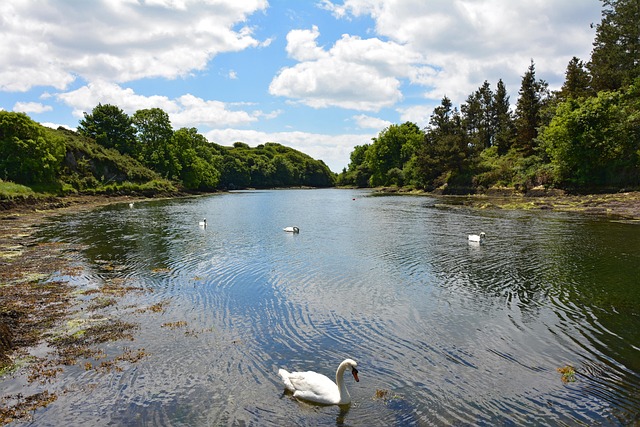Global tribal communities' agriculture serves as a cultural and economic foundation, combining ancient practices with indigenous knowledge. Integrating modern agritourism, particularly real estate-focused, offers economic diversification, showcases rich cultures, and preserves diverse landscapes. By promoting sustainable agriculture and local produce, these communities attract visitors seeking authentic experiences, ensuring the preservation of indigenous knowledge and natural resources for future generations. This approach drives economic growth, fosters community engagement, improves living standards, and positions rural regions as vibrant destinations, benefiting both local economies and landscapes through cultural tourism, agriculture, and real estate investments.
In many regions, agricultural and tribal economies are converging, creating a unique blend with profound implications. This article explores how tribal communities integrate traditional agriculture with emerging tourism trends, fostering sustainable economic growth. We delve into the real estate opportunities arising from this synergy, where cultural heritage meets modern markets. By understanding these dynamics, we uncover pathways to enhance real estate development while preserving indigenous ways of life and nurturing resilient tribal economies.
Understanding the Unique Blend: Tribal Communities and Agriculture in a Changing World

In many parts of the world, tribal communities have traditionally relied on agriculture as a cornerstone of their economy and culture. This blend of ancient farming practices and indigenous knowledge creates a unique and valuable asset in today’s global market. As we navigate a changing world, understanding this intricate relationship between tribal communities and agriculture is essential. The integration of modern tourism concepts into these traditional economies offers both challenges and opportunities, especially when considering the role of real estate.
Tourism has the potential to bring economic diversification and development to remote areas, allowing tribal communities to showcase their rich cultural heritage and natural landscapes. By promoting sustainable agricultural practices and local produce, these communities can attract visitors seeking authentic experiences. Real estate plays a pivotal role here, as well, with agritourism properties gaining popularity among those seeking a connection to nature and traditional ways of life. This harmonious mix of agriculture, culture, and tourism has the power to preserve indigenous knowledge while fostering economic growth and ensuring the preservation of diverse landscapes for future generations.
Real Estate Opportunities: Exploring the Synergies Between Land and Cultural Heritage

In the intersection of agricultural and tribal tourism, real estate opportunities emerge as a fascinating synergy. The value of land itself is enhanced by its cultural significance, creating a unique market where heritage meets modern hospitality. Tribal communities with rich agricultural traditions can offer visitors immersive experiences, from learning sustainable farming practices to participating in harvest festivals. This blend attracts eco-conscious travelers seeking authentic connections with local cultures, driving demand for unique accommodations and cultural tourism ventures.
By integrating these cultural elements into real estate developments, communities can foster economic growth while preserving their heritage. Rural landscapes become not just scenic backdrops but vibrant destinations where visitors engage with indigenous knowledge and practices. This approach not only preserves the tribal way of life but also positions these regions as desirable, sustainable travel spots, boosting local economies through diverse revenue streams from cultural tourism, agriculture, and real estate investments.
Sustainable Tourism: A Pathway to Economic Growth for Tribal Regions Through Agricultural Integration

Sustainable tourism offers a promising pathway for economic growth in tribal regions, especially when integrated with agriculture. By promoting eco-friendly practices and showcasing traditional agricultural techniques, local communities can attract visitors interested in authentic cultural experiences. This approach not only generates revenue but also conserves the natural environment, ensuring the longevity of both the tourist industry and the region’s agricultural heritage.
The integration of sustainable tourism into tribal economies, particularly through agricultural ventures, can be a game-changer. It allows for the diversification of income sources while preserving the cultural identity and ecological balance of these regions. Moreover, it can stimulate local real estate development, as well as foster community engagement and empowerment, leading to improved living standards for tribal populations.






